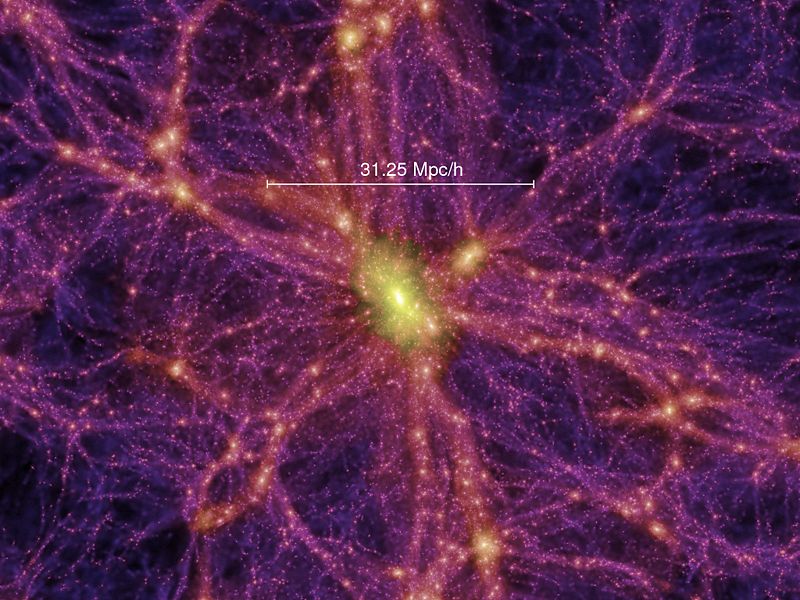Astronomers spend a lot of time making computer simulations of the Universe. Some discussion on The e-Astronomer's blog has set me thinking about why...
- To help us work out whether the stars and galaxies in the Universe could have arisen from much simpler beginnings. The Universe is quite a complex and diverse place. How did it get like that? Did it start off simple and gradually grow in complexity? Or is that completely implausible? Of course, we'll never get a definitive answer, but computer simulations can give us some pointers. However, at some point you have to say enough is enough and decide whether the answer is probably "Yes" or "No". It seems to be "Yes", so do we really need to keep doing more and more simulations?
- To find or test the laws of physics. If we plug the laws of physics into a computer simulation and find that it reproduces the observed Universe perfectly, then that suggests we were right after all. But if not, maybe we should try tweaking the laws of physics to see if that improves things? Again, this is an exciting question to ask, but simulations are nowhere near good enough to be able to do this - and it's questionable whether they ever will be.
- To reproduce observations. We know from observations that galaxies have XYZ properties. After N zillion CPU hours, our expensive simulation is able to reproduce XYZ. Wahey! This suggests that the simulations are working, which is good for establishing number 1 above. But there will always be fresh observations for the simulations to replicate, so what's the point of continuing indefinitely?
- To give observers something to look for. Our simulation of XYZ suggests that galaxies will also have ABC properties. Please Mr Observer, is this the case? Give me a few billion for a shiny new telescope and I'll tell you... Yes it is! Wahey! (Or, No it isn't - go back to step 3 and reproduce what we actually found.) Again, this can help to establish whether or not simulations can work (point 1 above). But once that's been established, it's another unending road to nowhere...
- To reconstruct the history of the Universe. To my mind, this is by far the best reason to keep on with the simulations. It's not a competition between simulations and observations, each trying to stay ahead of the other, but it's both working together (along with a hefty dose of human intuition and creativity) to uncover the sequence of events that made the Universe what it is today. So the aim is not primarily to formulate a simple mathematical description of the Universe or to quantify things with great precision. But astronomers are on a quest more akin to that of a historian, an archaeologist or a forensic scientist - first to figure out what actually happened, and then to communicate the excitement and drama of that story to everyone else.
- To make pretty pictures and animations. Okay, I lied. This (and this) is what simulations are for.
